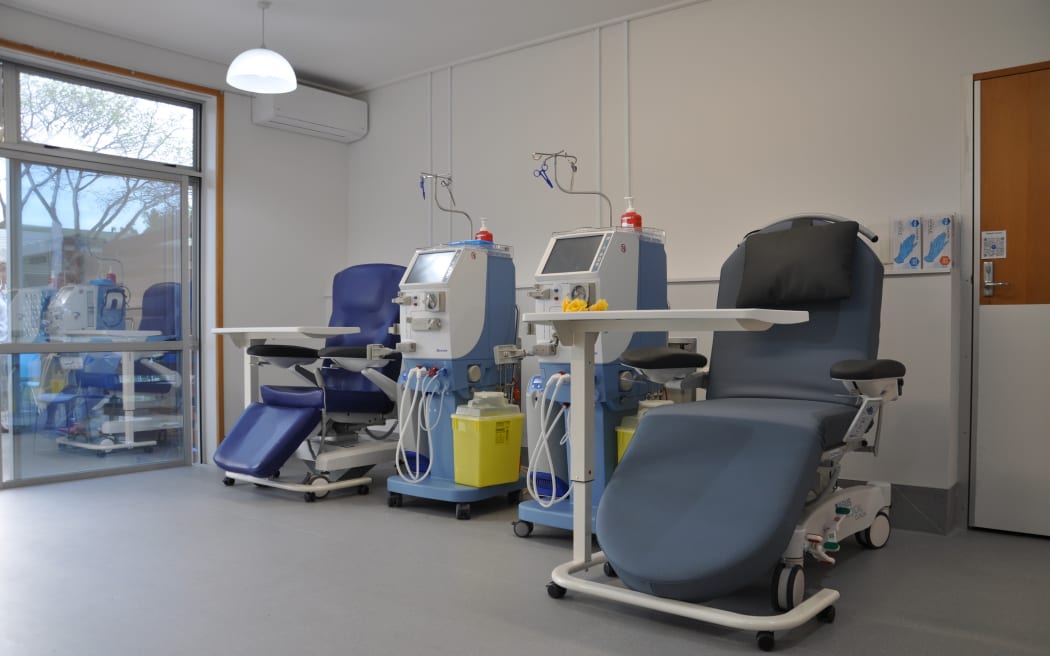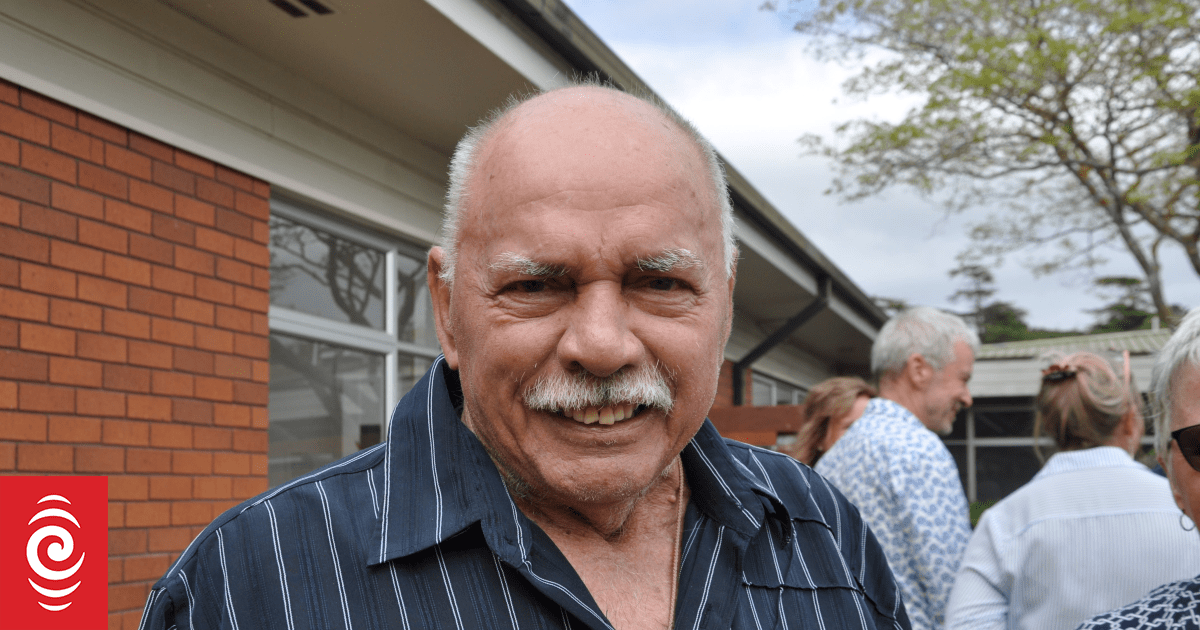
Haemodialysis patient Denis Gapper is thrilled he will no longer have to travel to Nelson, three times a week for treatment.
Photo: RNZ / Samantha Gee
For the last three years, kidney patient Denis Gapper has made the tiring journey from Blenheim to Nelson three times a week for life-saving dialysis.
Diagnosed with kidney disease six years ago, he has found the 10-hour round trip tough. Four hours is spent on the road and the rest in a chair receiving treatment.
“It gets harder the longer the week goes on. I get so tired and by the time Saturday comes, all I want to do is sleep,” he said.

The four-chair haemodialysis unit will initially be open three days per week, with capacity to expand as demand grows.
Photo: RNZ / Samantha Gee
Gapper was thrilled about the opening of a new four-chair dialysis unit in Blenheim called Tātari Toto, after writing to the Health Minister about the lack of services in Marlborough.
“I’m bloody excited I can tell you, this means so much to us patients, it’s not the biggest and it’s not the flashest unit, but it’s ours,” he said.
“I am 73 years old and this makes me feel like a teenager again.”

Health Minister Simeon Brown at the opening of the Wairau Community Haemodialysis Unit.
Photo: RNZ / Samantha Gee
The unit will initially be open three days per week, with capacity to expand as demand grows.
Volunteers from the Marlborough Community Vehicle Trust had been driving patients from Blenheim to Nelson for dialysis over the past seven years.

The four-chair haemodialysis unit will initially be open three days per week, with capacity to expand as demand grows.
Photo: RNZ / Samantha Gee
Trust chair Quentin Doig said the journey was tiring for patients and drivers, who sometimes had to take the long route through the Wairau Valley because of road closures and were occasionally stuck in Nelson overnight.
“It ends up as a 10-hour day because our drivers stay in Nelson while the passengers are being treated and wait for them to come out and then drive them back and particularly through the winter months it’s very gruelling in the very bad weather the drivers encounter,” he said.
“We’re just thrilled at the change this is making for the lives of these patients much easier.”
Marlborough Community Vehicle Trust chair Quentin Doig.
Photo: RNZ / Samantha Gee
Wairau Hospital physician Dr Reon van Rensburg said the number of people with kidney disease in need of dialysis was growing.
“Our main driver of end-stage kidney disease is diabetes and hypertension and the numbers have grown like in the rest of New Zealand and so we have reached a critical point where we needed to do this,” he said.
Between five and seven patients needed haemodialysis in Marlborough, van Rensburg said.
“That number does change – one of our patients had a transplant last week and that’s the best treatment of all, but already we’ve got somebody filling his gap,” he said.
Wairau_Hospital physician Dr Reon van Rensburg.
Photo: RNZ / Samantha Gee
Marlborough Primary Health chief executive Beth Tester said the organisation worked with Health New Zealand and iwi to open the unit.
“The community certainly saw a need from their whānau, Māori are a higher percentage of users needing dialysis as are Pasifika and so they actually felt it wasn’t fair and equitable, the postcode lottery, of actually having to travel when we should have something locally,” she said.
The number of people in the region needing haemodialysis was expected to double in the next few years, Tester said.
“Many people have chosen not to go on haemodialysis because they couldn’t cope with the travel and now they have that option if they wish to, they can do it here at home, it’s totally life changing,” she said.
The unit cost $500,000, almost half of which was spent on the five dialysis machines.

Marlborough Primary Health chief executive Beth Tester says the ability to deliver haemodialysis in Blenheim is life changing for patients.
Photo: RNZ / Samantha Gee
Health Minister Simeon Brown, who opened the unit, praised the partnership between Health NZ and Marlborough Primary Health.
“It just shows the role that PHOs can play, which is really good and ultimately everyone listening to the stories of patients and actually doing what’s right for patients and putting patients first is why we’re all here today,” he said.
“We know that dialysis is a critical life preserving service which is so important to patients up and down the country and it’s a big focus of Health New Zealand to make sure that we have the right supply of dialysis services across the country but also meeting the growing demand.”
Patients will start receiving haemodialysis treatment at Tātari Toto in Blenheim from next week.
Sign up for Ngā Pitopito Kōrero, a daily newsletter curated by our editors and delivered straight to your inbox every weekday.

